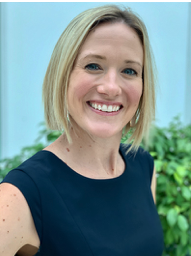College's Center for Health and Community Impact receives $500,000 to grow culture of health in Dearborn Public Schools
The College of Education's Center for Health and Community Impact received $500,000 from the Michigan Health Endowment Fund to support Dearborn School Health through Integrated Nutrition and Exercise Strategies (D-SHINES), a program focused on improving the health of Dearborn Public School youth, early childhood through middle school, their families and surrounding communities. The grant allows the program to reach 16 Dearborn Public Schools and put an added emphasis on parent engagement.

The goal of D-SHINES is to create a culture of health in the Dearborn community. The program takes a comprehensive approach by providing a combination of increased physical activity and healthy eating opportunities across the school day, development of school gardens, parent and family engagement, principal and teacher professional development and support, and policy and systems-level changes to decrease risk factors for obesity and chronic diseases. The initiative provides direct education, meaningful opportunities and ongoing support for youth, adults and families to make healthy lifestyle changes in order to reduce and prevent health disparities among a significantly underserved population: Arab American youth and adults.
Jeanne Barcelona Ph.D., assistant professor of community health and principal investigator, and Erin Centeio, a former Wayne State assistant professor (now at the University of Hawaii) and co-principal investigator, collaborated with the University of Michigan Dearborn, the National Kidney Foundation and the Healthy Dearborn Coalition through Beaumont Health to develop the D-SHINES program. Launched in 2018, the initiative provided health, nutrition and exercise education, and activities to elementary and middle school students and their families.
"The Michigan Health Endowment Fund has made a substantial investment in the health of children, families, schools and the surrounding Dearborn community through its funding of the D-SHINES program," said Barcelona. "Through the Health Fund's support, the D-SHINES program is able to encourage a culture of health that engages early childhood through early adolescent students and their families in relevant, meaningful and fun healthy eating and physical activities to combat obesity, nutrition-related health problems, and chronic diseases."